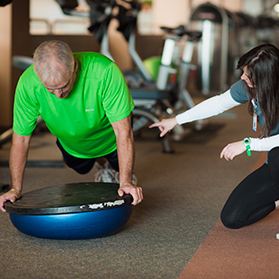3 Ways to Prevent Osteoporosis

If you have a family history of osteoporosis, there are a few things you should start doing now.
#1: Add More Calcium and Vitamin D to Your Diet
These two nutrients are meant to be taken simultaneously because Vitamin D helps your body absorb calcium, which helps build bones. If you have gone through menopause, Mahnaz Saoudian MD, a rheumatologist at TriHealth, recommends:
- 1,200 mg of calcium daily
- 800 IU of vitamin D daily
“This helps a lot. It can – to some extent – protect you from having bone loss,” she explains.
Otherwise, eating foods high in calcium and vitamin D are critical for bone health, regardless of your age.
#2 Exercise to Strengthen Your Bones
Weight bearing activities, like walking, jogging, dancing or weight lifting, can help prevent bone loss. Weight-bearing exercises stimulate bones to produce more cells, slowing bone loss. “Yoga and stretching exercises, they help, but not as much as cardio and weight bearing exercises,” Dr. Saoudian explains.
Physical activity also improves balance and coordination, which helps reduce falls and broken bones that accompany osteoporosis.
#3: If You Smoke, Stop
Smoking can affect calcium absorption and estrogen levels, and therefore, smokers are at a higher risk of developing osteoporosis.
Similarly, drinking more than three servings of alcohol every day puts you at a higher risk as well.